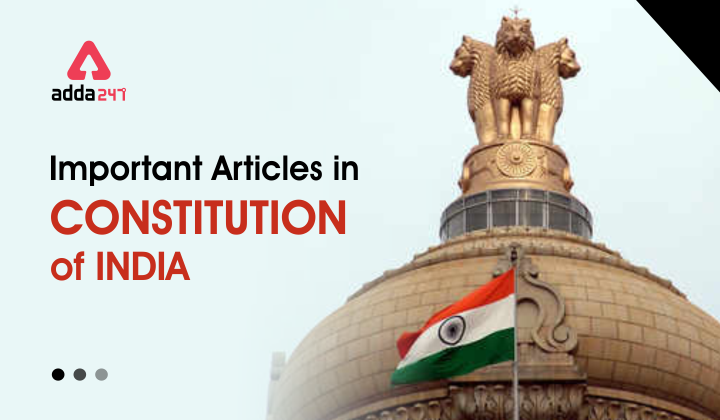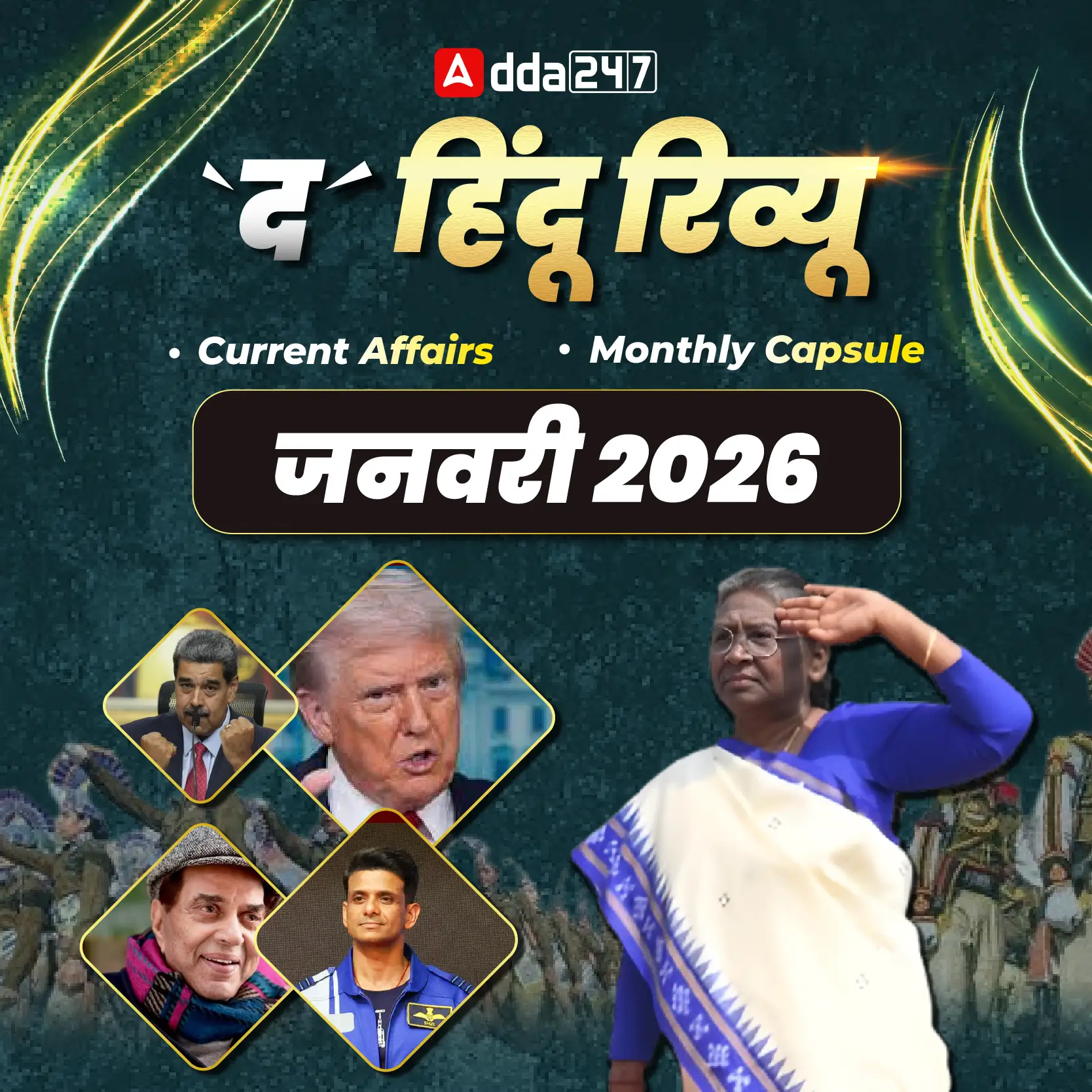|
Parts of the constitution
articles
|
Articles and Definition
|
Subjects of the parts
|
|
Part I
|
- Article 1- Name and
territory of the union
- Article 2- Admission and
establishment of the new state.
- Article 3- Formation of
new states and alteration of areas, boundaries, and names of existing
states.
|
Union Territories
|
|
Part II
|
- Article 5 – Citizenship at
the commencement of the constitution
- Article 6 – Rights of
citizenship of a certain person who has migrated to India from Pakistan
- Article 10 – Continuance of
rights of citizenship
- Article 11 – Parliament to
regulate the right of citizenship by law
|
Citizenship
|
|
Part III
|
- Article 12 – Definition of
the state
- Article 13 – Laws
inconsistent with or in derogation of the fundamental rights
- Article 14 – Equality before
the law.
- Article 15 – Prohibition of
discrimination on the grounds of religion, race, caste, sex, or place of
birth.
- Article 16 – Equality of
opportunity in matters of public employment.
- Article 17 – Abolition of the
untouchability.
- Article 18 – Abolition
of titles.
- Article 19 – Guarantees
to all the citizens the six rights and they are:
a
– Freedom of speech and expression.
b
– Freedom to assemble peaceably and without arms.
c
– Freedom to form associations or unions.
d
– Freedom to move freely throughout the territory of India.
e
– Freedom to reside and settle in any part of the territory of India.
f
– Omitted
g
– Freedom to practice any profession, or to carry on any occupation, trade,
or business.
- Article 20 – Protection in
respect of conviction for offenses.
- Article 21 – Protection of
life and personal liberty.
- Article 22 – Protection
against arrest and detention in certain cases
- Article 23 – Prohibition of
traffic in human beings and forced labor.
- Article 24 – Prohibition of
employment of children (Under the age of 14) in factories and mines.
- Article 25 – Freedom of
conscience and free profession, practice, and propagation of religion.
- Article 26 – Freedom to
manage religious affairs.
- Article 27 – Freedom as to
pay taxes for the promotion of any particular religion.
- Article 28 – Freedom from
attending religious instruction.
- Article 29 – Protection of
interest of minorities.
- Article 30 – Right of
minorities to establish and administer educational institutions.
- Article 32 – Remedies for
enforcement of Fundamental Rights.
|
Fundamental rights
|
|
Part IV
|
- Article 36 – Definition
- Article 37– Application of
DPSP
- Article 39A – Equal
justice and free legal aid
- Article 40 – Organization of
a village panchayat
- Article 41 – Right to work,
education, and public assistance in certain cases
- Article 43 – Living
Wages, etc. for workers.
- Article 43A – Participation
of workers in the management of industries.
- Article 44 – Uniform civil
code.
- Article 45 – Provision for
free and compulsory education for children.
- Article 46 – Promotion of
educational and economic interest of scheduled castes (SC), scheduled
tribes (ST), and OBC.
- Article 47– Duty of the
state to raise the level of nutrition and the standard of living and to
improve public health.
- Article 48 – Organization of
agriculture and animal husbandry.
- Article 49 – Protection of
monuments and places and objects of natural importance.
- Article 50 – Separation
of judiciary from the executive.
- Article 51 – Promotion of
international peace and security.
|
Directive Principles
|
|
Part IV A
|
It
shall be the duty of every citizen of India
(a)
to abide by the Constitution and respect its ideals and institutions, the
National Flag and the National Anthem;
(b)
to cherish and follow the noble ideals which inspired our national struggle
for freedom;
(c)
to uphold and protect the sovereignty, unity, and integrity of India;
(d)
to defend the country and render national service when called upon to do so;
(e)
to promote harmony and the spirit of common brotherhood amongst all the
people of India transcending religious, linguistic, and regional or sectional
diversities; to renounce practices derogatory to the dignity of women;
(f)
to value and preserve the rich heritage of our composite culture;
(g)
to protect and improve the natural environment including forests, lakes,
rivers, and wildlife, and to have compassion for living creatures;
(h)
to develop the scientific temper, humanism, and the spirit of inquiry and reform;
(i)
to safeguard public property and to abjure violence;
(j)
to strive towards excellence in all spheres of individual and collective
activity so that the nation constantly rises to higher levels of endeavor and
achievement
|
Fundamental Duties
|
|
Part V
|
- Article 52 – The
President of India
- Article 53 – Executive
Power of the union
- Article 54 – Election of
President
- Article 61 – Procedure
for Impeachment of the President
- Article 63 – The
Vice–president of India
- Article 64 – The
Vice–President to be ex–officio chairman of n the council of States
- Article 66 – Election of
Vice–president
- Article 72 – Pardoning powers
of President
- Article 74 – Council of
ministers to aid and advise President
- Article 76 – Attorney–General
for India
- Article 79 – Constitution of
Parliament
- Article 80 – Composition of
Rajya Sabha
- Article 81 – Composition of
Lok Sabha
- Article 83 – Duration of
Houses of Parliament
- Article 93 – The speakers and
Deputy speakers of the house of the people
- Article 105 – Powers,
Privileges, etc. of the House of Parliament
- Article 109 – Special
procedure concerning money bills
- Article 110 – Definition of
“Money Bills”
- Article 112 – Annual
Financial Budget
- Article 114 –Appropriation
Bills
- Article 123 – Powers of the
President to promulgate Ordinances during recess of parliament
- Article 124 – Establishment
of Supreme Court
- Article 125 – Salaries of
Judges
- Article 126 – Appointment of
acting Chief justice
- Article 127 – Appointment of
ad–hoc judges
- Article 128 –Attendance of
retired judge at sitting of the Supreme Court
- Article 129 – Supreme Court
to be a court of Record
- Article 130 – Seat of the
Supreme Court
- Article 136 – Special leaves
for an appeal to the Supreme Court
- Article 137 – Review of judgment
or orders by the Supreme Court
- Article 141 – Decision of the
Supreme Court of India binding on all the courts
- Article 148 – Comptroller and
Auditor– General of India
- Article 149 – Duties and
Powers of CAG
|
union
|
|
Part VI
|
- Article 153 – Governors of
State
- Article 154 – Executive
Powers of Governor
- Article 161 – Pardoning
powers of the Governor
- Article 165 –
Advocate–General of the State
- Article 213 – Power of
Governor to promulgate ordinances
- Article 214 – High Courts for
states
- Article 215 – High Courts to
be a court of record
- Article 226 – Power of High
Courts to issue certain writs
- Article 233 – Appointment of
District judges
- Article 235 – Control over
Subordinate Courts
|
States
|
|
Part VII
|
7th Amendment Act
|
–
|
|
Part VIII
|
- Article 239 – Administration
of Union territories.
- Article 239A – Creation of
local Legislatures or Council of Ministers or both for certain Union
territories.
- Article 239AA – Special
provisions concerning Delhi.
- Article 239AB – Provision in
case of failure of constitutional machinery.
- Article 239B – Power of
administrator to promulgate Ordinances during recess of Legislature.
- Article 240 – Power of
President to make regulations for certain Union territories.
- Article 241 – High Courts for
Union territories.
- Article 242 – Coorg
|
Union Territories
|
|
Part IX
|
- Article 243A – Gram Sabha
- Article 243B – Constitution
of Panchayats
|
Panchayats
|
|
Part IX-A
|
- Article 243P –
Definitions.
- Article 243Q – Constitution
of Municipalities.
- Article 243R – Composition of
Municipalities.
- Article 243S – Constitution
and composition of Wards Committees, etc.
- Article 243T – Reservation of
seats.
- Article 243U – Duration of
Municipalities, etc.
- Article 243V
-Disqualifications for membership.
- Article 243W – Powers,
authority, and responsibilities of Municipalities, etc.
- Article 243X – Power to
impose taxes by, and Funds of, the Municipalities.
- Article 243Y – Finance
Commission.
- Article 243Z – Audit of accounts
of Municipalities.
- Article 243ZA – Elections to
the Municipalities.
- Article 243ZB – Application
to Union territories.
- Article 243ZC – Part not to
apply to certain areas.
- Article 243ZD – Committee for
district planning.
- Article 243ZE – Committee for
Metropolitan planning.
- Article 243ZF – Continuance
of existing laws and Municipalities.
- Article 243ZG – Bar to
interference by courts in electoral matters.
|
Municipalities
|
|
Part IX B
|
- Article 243ZH – Definitions.
- Article 243ZI – Incorporation
of co-operative societies.
- Article 243ZJ – Number and
term of members of the board and its office bearers.
- Article 243ZK – Election of
members of the board.
- Article 243ZL – Supersession
and suspension of the board and interim management.
- Article 243ZM – Audit of
accounts of co-operative societies.
- Article 243ZN – Convening of
general body meetings.
- Article 243ZO – Right of a
member to get information.
- Article 243ZP – Returns.
- Article 243ZQ – Offences and
penalties.
- Article 243ZR – Application
to multi-State co-operative societies.
- Article 243ZS – Application
to Union territories.
- Article 243ZT – Continuance
of existing laws.
|
Co-operative Societies
|
|
Part X
|
- Article 244- Administration
of Scheduled Areas and Tribal Areas
|
Scheduled Tribe areas
|
|
Part XI
|
- Article 245 – Extent of
laws made by Parliament and by the Legislatures of States.
- Article 246 – Subject-matter
of laws made by Parliament and by the Legislatures of States.
- Article 246A – Special
provision concerning goods and services tax.
- Article 247 – Power of
Parliament to provide for the establishment of certain additional
courts.
- Article 248 – Residuary
powers of legislation.
- Article 249 – Power of
Parliament to legislate concerning a matter in the State List in the national
interest.
- Article 250 – Power of
Parliament to legislate concerning any matter in the State List if a
Proclamation of Emergency is in operation.
- Article 251 – Inconsistency
between laws made by Parliament under articles 249 and 250 and laws made
by the Legislatures of States.
- Article 252 – Power of
Parliament to legislate for two or more States by consent and adoption
of such legislation by any other State.
- Article 253 – Legislation for
giving effect to international agreements.
- Article 254 – Inconsistency
between laws made by Parliament and laws made by the Legislatures of
States.
- Article 255 – Requirements as
to recommendations and previous sanctions to be regarded as matters of
procedure only.
- Article 256 – Obligation of
States and the Union.
- Article 257 – Control of the
Union over States in certain cases.
- Article 257A – Assistance to
States by the deployment of armed forces or other forces of the Union.
- Article 258 – Power of the
Union to confer powers, etc., on States in certain cases.
- Article 258A – Power of the
States to entrust functions to the Union.
- Article 259 – Armed Forces in
States in Part B of the First Schedule.
- Article 260 – Jurisdiction of
the Union about territories outside India.
- Article 261 – Public acts,
records, and judicial proceedings.
- Article 262 – Adjudication of
disputes relating to waters of inter-State rivers or river valleys.
- Article 263 – Provisions
concerning an inter-State Council.
|
Relation of Union and states
|
|
Part XII
|
- Article 266 –
Consolidated Fund and Public Accounts Fund
- Article 267 – Contingency
Fund of India
- Article 280 – Finance
Commission
- Article 300 A – Right to
property
|
Properties, finance, suits, and
contracts
|
|
Part XIII
|
- Article 301 – Freedom
to trade, commerce, and intercourse
- Article 302 – Power of
Parliament to impose restrictions on trade, commerce, and intercourse.
|
Trade, commerce, and communication
between the territories of India
|
|
Part XIV
|
- Article 312 – All–
India–Service
·
Article 315 – Public service commissions for the union and the states
- Article 320 – Functions
of Public Service Commission
|
Services under the union and
states
|
|
Part XIV A
|
- Article 323A – Administrative
Tribunals
|
Tribunals
|
|
Part XV
|
- Article 324 – Superintendence,
direction, and control of Elections to be vested in an Election
Commission
- Article 325 – No person to be
ineligible for inclusion in or to claim to be included in a special,
electoral roll on grounds of religion, race, caste, or sex
- Article 326 – Elections
to the house of the people and the legislative assemblies of states to
be based on adult suffrage
|
Elections
|
|
Part XVI
|
- Article 338 – National
Commission for the SC & ST
- Article 340 –
Appointment of a commission to investigate the conditions of backward
classes special
|
Special provisions for certain
classes
|
|
Part XVII
|
- Article 343 – Official
languages of the Union
- Article 345 – Official
languages or languages of a state
- Article 348 – Languages to be
used in the Supreme Court and the High Courts
- Article 351 – Directive for
development of the Hindi languages
|
Languages
|
|
Part XVIII
|
- Article 352 –
Proclamation of emergency (National Emergency)
- Article 356 – State
Emergency (President’s Rule)
- Article 360 – Financial
Emergency
|
Emergency Provisions
|
|
Part IX
|
- Article 361 – Protection of
President and Governors
|
Miscellaneous
|
|
Part XX
|
- Article 368 – Powers of
Parliaments to amend the constitution amendment
|
Amendment of constitution
|
|
Part XXI
|
- Article 370 – Temporary
Provision for the erstwhile State of J&K
- Article 371 A – Special
provision concerning the State of Nagaland
- Article 371 J – Special
Status for Hyderabad–Karnataka region
|
Temporary and special provision
|
|
Part XXII
|
- Article 393 –This
Constitution may be called the Constitution of India
|
Commencement, Authoritative text
in Hindi
|





 व्यापार सूचकांकों का आधार वर्ष बदलकर 202...
व्यापार सूचकांकों का आधार वर्ष बदलकर 202...
 कौन हैं आशा शर्मा? जो संभालेंगी Microsof...
कौन हैं आशा शर्मा? जो संभालेंगी Microsof...
 हरशरण कौर त्रेहन PSPCL की पहली महिला डाय...
हरशरण कौर त्रेहन PSPCL की पहली महिला डाय...








